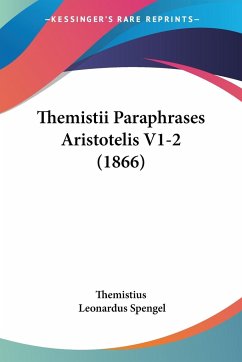
Buch
Georg Olms Verlag, Hildesheim

22,99 €
Versandfertig in 1-2 Wochen
Broschiertes Buch
27. April 2009
Kessinger Publishing, LLC
Gebundenes Buch
1903.
1. April 1903
De Gruyter
Gebundenes Buch
A Critical Hebrew-Arabic Edition of the Surviving Textual Evidence, with an Introduction, Preliminary Studies, and a Commentary
18. Juli 2019
Brill
Gebundenes Buch
13. Januar 2014
Cambridge University Press
| eBook, ePUB | 18,95 € | |
| eBook, PDF | 25,95 € |
eBook, ePUB
12. November 2020
Bloomsbury UK eBooks
18,95 €
Sofort per Download lieferbar
eBook, ePUB
28. November 2013
Cambridge University Press
eBook, PDF
28. November 2013
Cambridge University Press
eBook, ePUB
22. Dezember 2023
University of California Press
Ähnlichkeitssuche: Fact®Finder von OMIKRON
